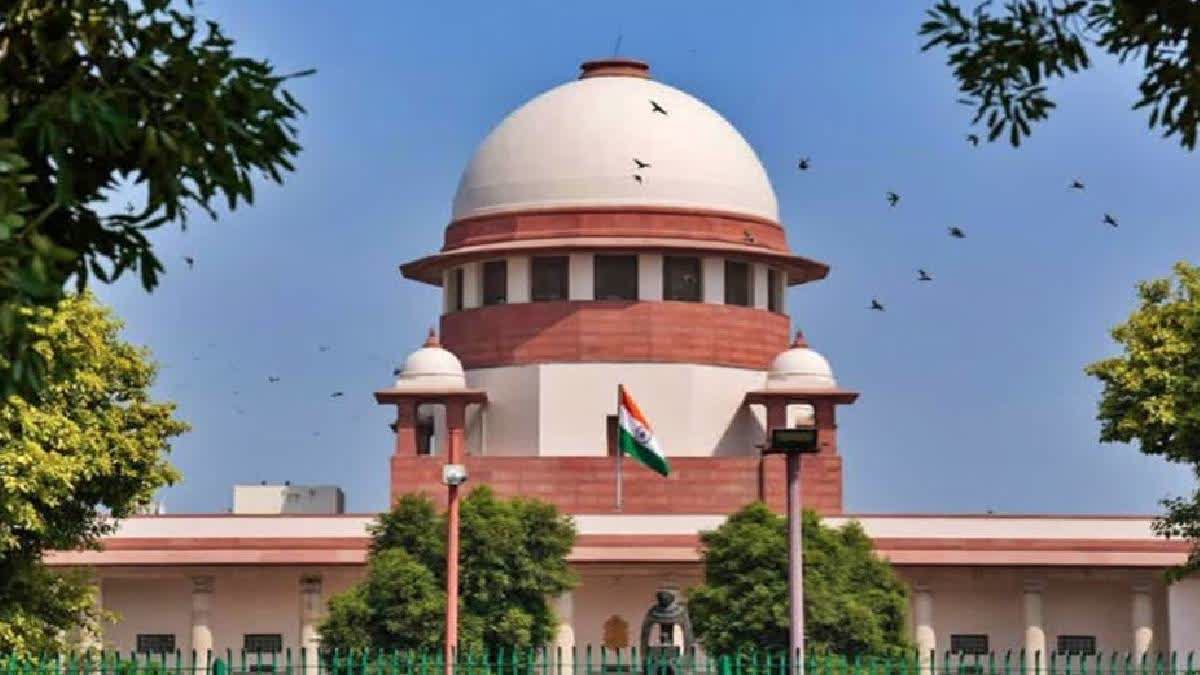New Delhi: Supreme Court judge Justice Ujjal Bhuyan on Friday said the timing of the arrest of the Delhi Chief Minister by the CBI, in the Delhi excise policy case, is a suspect and courts must ensure that they continue to remain the first line of defence against deprivation of liberty of the citizens.
While granting bail to Kejriwal, Justice Bhuyan said courts must ensure that they continue to remain the first line of defence against the deprivation of liberty of the citizens and stressed that "deprivation of liberty even for a single day is one day too many".
He said that the power to arrest is one thing but the need to arrest is altogether a different thing and just because an investigating agency has the power to arrest, it does not necessarily mean that it should arrest such a person, and the existence of the power of arrest is one thing but justification for the exercise of it is quite another.
Justice Bhuyan stressed that the investigation should be conducted in a manner so as to draw a just balance between a citizen’s right under Articles 19 and 21 of the Constitution of India and the expansive power of the police to investigate. He stressed that the concept of fair investigation and fair trial are concomitant to preservation of the fundamental right of the accused under Article 21 of the Constitution.
Justice Bhuyan stressed on the need to sensitize the police against highhanded arrest, and that the police officers should not arrest the accused unnecessarily and that the magistrate should not authorise detention casually and mechanically.
Citing Mohd. Zubair’s case, Justice Bhuyan said a three-judge bench of this court emphasised that the existence of the power of arrest must be distinguished from the exercise of the power of arrest. “The exercise of the power of arrest must be pursued sparingly. This Court reiterated the role of the courts in protecting personal liberty and ensuring that investigations are not used as a tool of harassment”, he said.
The substantive charge against Kejriwal is under Section 477A IPC which deals with falsification of accounts and if convicted carries a punishment of imprisonment for a term which may extend to seven years or with fine or with both. Kejriwal has also been charged under Section 7 of the PC Act which deals with offence relating to a public servant being bribed and the punishment, if convicted, is imprisonment for a term which shall not be less than three years but which may extend to seven years.
Justice Bhuyan said, “Without entering into the semantics of applicability of Section 41(1)(b)(ii) and Section 41A Cr.P.C. as explained by this court in Arnesh Kumar (supra), timing of the arrest of the appellant by the CBI is quite suspect…..rule of law, which is a basic feature of our constitutional republic, mandates that investigation must be fair, transparent and judicious. This court has time and again emphasized that fair investigation is a fundamental right of an accused person under Articles 20 and 21 of the Constitution”.
He said after observing that it would be more to the benefit of the appellant if the appellant approaches the special judge first for bail more so when the chargesheet has been filed, the high court relegated Kejriwal to the forum of the special judge though both the court of the special judge and the Delhi High Court have concurrent jurisdiction in the matter.
“If indeed the High Court thought of remanding the appellant to the forum of the Court of Special Judge, it could have done so at the threshold itself. After issuing notice, after hearing the parties at length and reserving the judgment for about a week, the above order (denying bail to Kejriwal) was passed by the High Court. Though couched in a language which appears to be in favour of the appellant, in practical terms it has only resulted in prolonging the incarceration of the appellant for a far longer period impacting his personal liberty”, said Justice Bhuyan.
He stressed that when Kejriwal has been granted bail under the more stringent provisions of PMLA, further detention of the appellant by the CBI in respect of the same predicate offence has become wholly untenable. “In such circumstances, asking the appellant or relegating the appellant to approach the trial court, then to the High Court and then to this Court for a fresh round of bail proceedings in the CBI case after he had already traversed the same route in the PMLA case would be nothing but a case of procedure triumphing the cause of justice”, said Justice Bhuyan.
“I am of the unhesitant view that the belated arrest of the appellant by the CBI is unjustified and the continued incarceration of the appellant in the CBI case that followed such arrest has become untenable”, said Justice Bhuyan.
Justice Bhuyan said the CBI is definitely wrong when it says that because the appellant was evasive in his reply, because he was not cooperating with the investigation, therefore, he was rightly arrested and now should be continued in detention. “The respondent (CBI) cannot justify arrest and continued detention citing evasive reply. We should not forget the cardinal principle under Article 20(3) of the Constitution of India that no person accused of an offence shall be compelled to be a witness against himself”, said Justice Bhuyan
Read more



